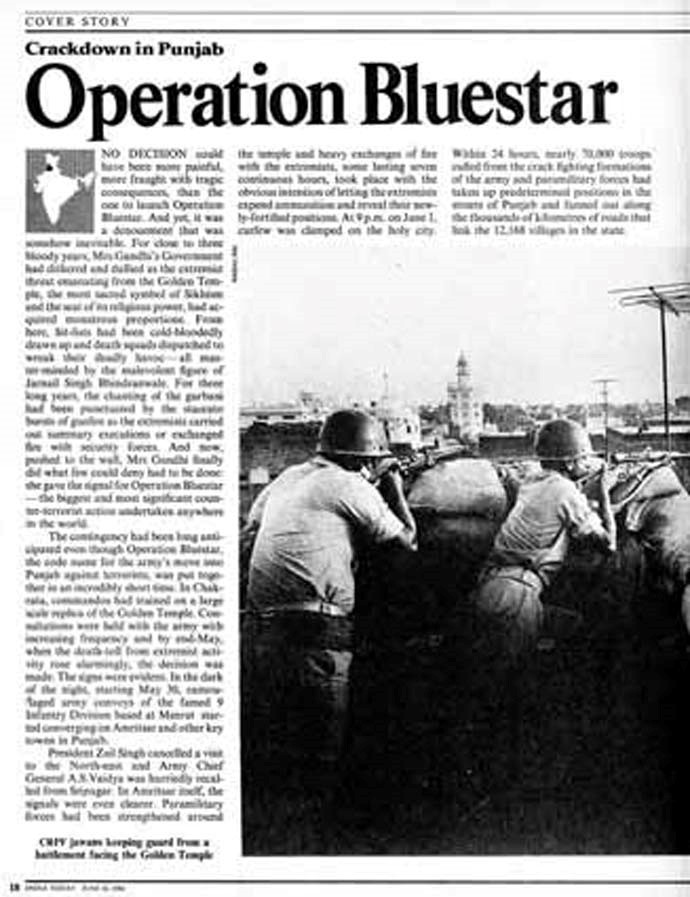Free Courses Sale ends Soon, Get It Now


Free Courses Sale ends Soon, Get It Now



Disclaimer: Copyright infringement not intended.
Context
Background over issue of separate land Khalistan
Jarnail Singh Bhindranwale
Worsening situation
Operational Bluestar
Implications
Solution
Gill doctrine
Rajiv–Longowal Accord
|
PRACTICE QUESTION Operation Bluestar has significant implications for the unity and integrity of the nation even today. Justify in context of recent emergence of separatist activities in Punjab. (150 words) |
Sources:
https://en.wikipedia.org/wiki/Rajiv%E2%80%93Longowal_Accord
© 2024 iasgyan. All right reserved